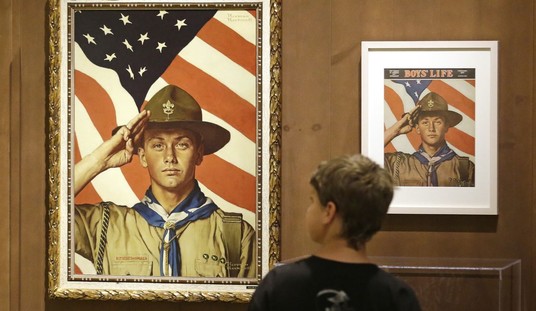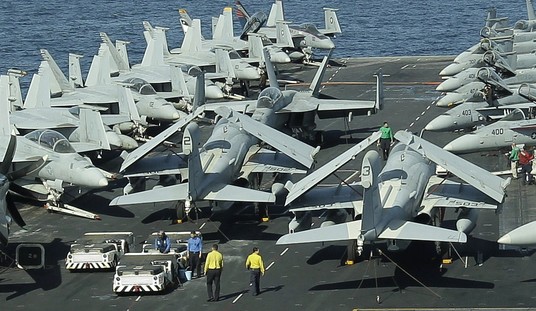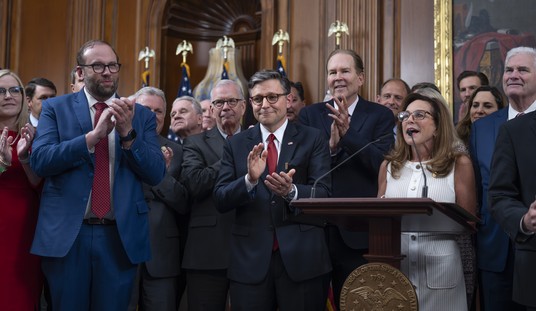Iraq’s second-largest city fell to jihadists, a danger that had been building up but appeared to be low on Washington’s priority list.
The Islamic State of Iraq and the Levant, formerly known as al-Qaeda in Iraq, “infiltrated the old-city quarter of Meidan and have established a bridgehead close to the Old Bridge over the Tigris River that bisects the city into two halves,” according to the newspaper Azzaman.
“Government troops lack the necessary air support to take out the militants. Their assaults have failed so far to halt the push by ISIS… The districts and towns nearby report large-scale exodus, with thousands of displaced Mosul residents arriving in Zammar and the Kurdish city of Dahouk.”
Azzaman reports that Kurdish militias — the peshmerga — are on “high alert” to take a stand against the terrorists.
On Monday, Nineveh Governor Atheel al-Nujaifi made a televised plea to Mosul’s residents, calling on them to “stand firm in their areas and to defend them against the strangers,” according to the BBC.
Deputy Assistant Secretary of State Brett McGurk is in the region to talk about an oil dispute between Baghdad and Erbil.
“He arrived in Iraq on Saturday for a series of meetings with Iraqi leaders over the coming days. Over the weekend and into today he held meetings with senior leaders in the Iraqi Kurdistan region to discuss the political and security situation and on the energy front stressed the importance of Erbil and Baghdad returning to discussions to finalize an accord on energy exports and revenue sharing. He will remain in the Iraqi Kurdistan region for additional meetings before heading to Baghdad tomorrow on Tuesday,” State Department spokeswoman Marie Harf told reporters yesterday.
“In Baghdad he will meet with a variety of Iraqi leaders from across the political spectrum to discuss the evolving threat of ISIL, including the situation in Anbar province and the recent attacks in Mosul. He will also stress with leaders in Baghdad the importance of renewing discussions on an energy accord. And I’m sure we’ll have more to say about his meetings after they happen.”
Fallujah fell to al-Qaeda forces in January, sparking swift criticism on the Hill of the administration’s strategy in Iraq and subsequent pullout map in Afghanistan.
“Look, we’re following very closely reports of significant ISIL attacks, particularly in the city of Mosul. The security situation is, quite frankly, there still in flux. And the Iraqi security forces have undertaken operations to fight back against this; they remain ongoing. Obviously, I can’t go into all of the on-the-ground specifics,” Harf said Monday.
“We have worked with the Iraqis quite a bit to build their capacity and their capability to fight this threat,” she added. “ISIL has recently launched attacks on Anbar University in Ramadi, on the PUK in other places. So ISIL is a very serious threat, and we are talking to the Iraqis. That’s why Brett McGurk is there right now, in part. What more can we do, what else can we do, how can we help you better fight this threat? You know we have certain deliveries of things that we have either sent or have in the pipeline to go to them.”
Cynical turn of events: US gave weapons 2 Iraq army 2 fight ISIS, now Iraq army leaves weapons behind in #Mosul. So US guns in hands of ISIS
— Jenan Moussa (@jenanmoussa) June 10, 2014
In March 2007, Mosul seriously seemed like a respite from the chaos of the rest of Iraq. Just less tense. http://t.co/onYyFf0uA6
— Spencer Ackerman (@attackerman) June 10, 2014
See this -> @Amoka #Mosul situation map acc 2 news outlets – city controlled by #ISIS major buildings, banks, schools pic.twitter.com/wTDGgPdeeV
— Jenan Moussa (@jenanmoussa) June 10, 2014
ISIS controls all of Mosul’s govt facilities, airports,central bank holding billions of Iraqi currencies….
— Shami Witness (@ShamiWitness) June 10, 2014
ISIS claim they have “liberated” Mosul and freed 2500 prisoners. Definitely not what Iraq needs right now.
— Clarissa Ward (@clarissaward) June 10, 2014









Join the conversation as a VIP Member